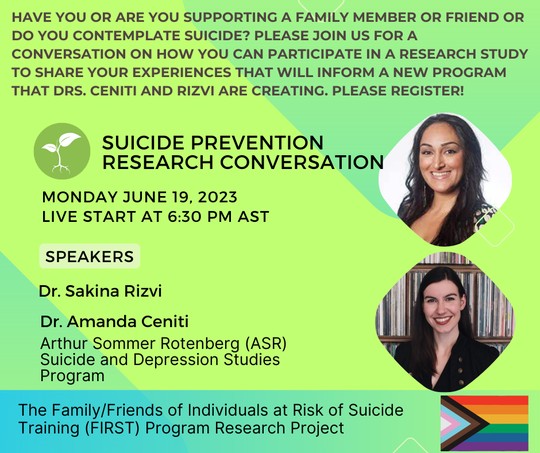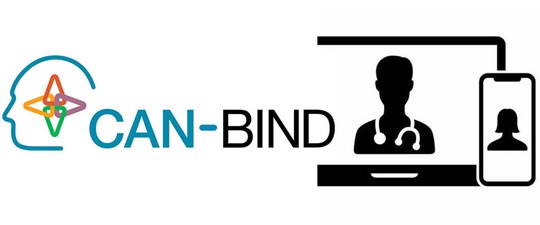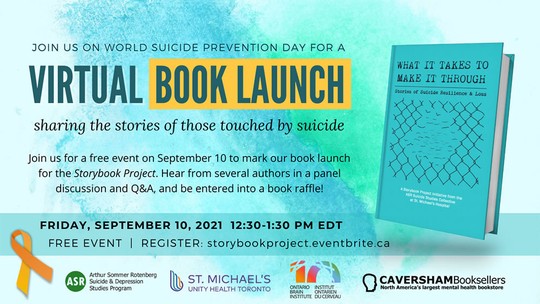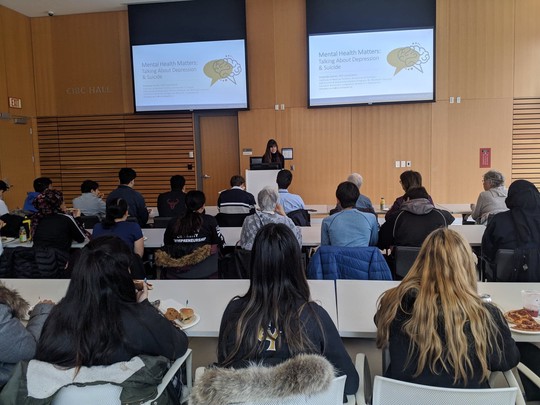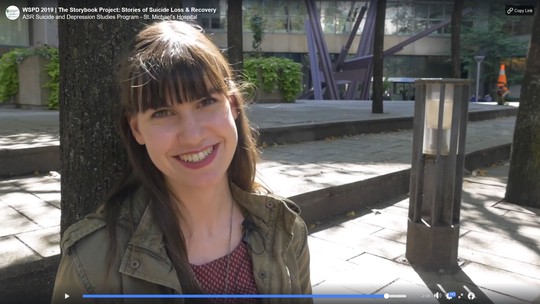About Me
Hello! I am an Assistant Instructional Professor of Psychology in the Master of Arts Program in the Social Sciences (MAPSS) at the University of Chicago. I hold a PhD from the Institute of Medical Science and the Collaborative Program in Neuroscience at the University of Toronto, where I also received an HBSc in Human Biology: Neuroscience. Prior to joining the University of Chicago, I was a Postdoctoral Fellow at the ASR Suicide & Depression Studies Program at St. Michael’s Hospital and the University of Toronto.
My research focuses on depression and suicide risk using interdisciplinary methods, including neuroimaging, cognitive tasks, clinical measures, and qualitative interviews. My current work focuses on the needs of family and friends supporting their loved ones at risk of suicide. There is a significant lack of resources available for this group and a strong need to bolster community-level suicide prevention strategies. In my postdoctoral work with Drs. Sakina Rizvi and Yvonne Bergmans, I co-led a national needs assessment to understand the barriers and gaps experienced by friends/family in supporting their loved ones, using qualitative and participatory action research methods. We are now using these findings to co-develop and test a novel suicide prevention training program specific to friend/family needs, in partnership with people with lived/living experience.
My doctoral research in neuroscience with Dr. Sidney Kennedy focused on the association between Major Depressive Disorder and mild traumatic brain injury (mTBI), with a particular focus on the brain’s reward system. In this work, I used resting-state and task-based neuroimaging (fMRI); behavioral measures of reward and cognition; and clinical interviews and questionnaires to better understand the cumulative impact of mTBI and depression, compared to either condition alone. I have also studied the effects of the COVID-19 pandemic on mental health, including trends in emergency department visits for self-harm during COVID-19 as well as patient and provider experiences with virtual mental health care. A final area of research focus involves cognitive and neuroimaging predictors of treatment response in depression, including to pharmacotherapy and neurostimulation.
In addition to my research and teaching, I am also involved with public engagement and knowledge translation activities, including coordination of the national Storybook Project initiative, a published collection of personal stories written by those impacted by suicide across Canada.
Interests
- Depression & suicide risk
- Community-based suicide prevention
- Functional neuroimaging
- Neuropsychiatric impact of traumatic brain injury
- Mental health public outreach & advocacy
Education
PhD in Medical Science, 2022
University of Toronto
HBSc in Human Biology (Neuroscience), 2015
University of Toronto
